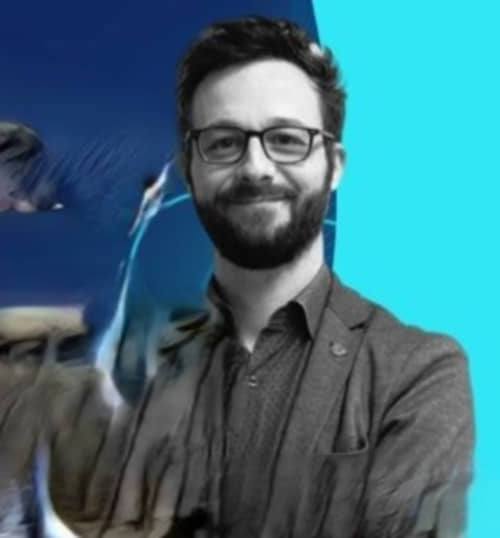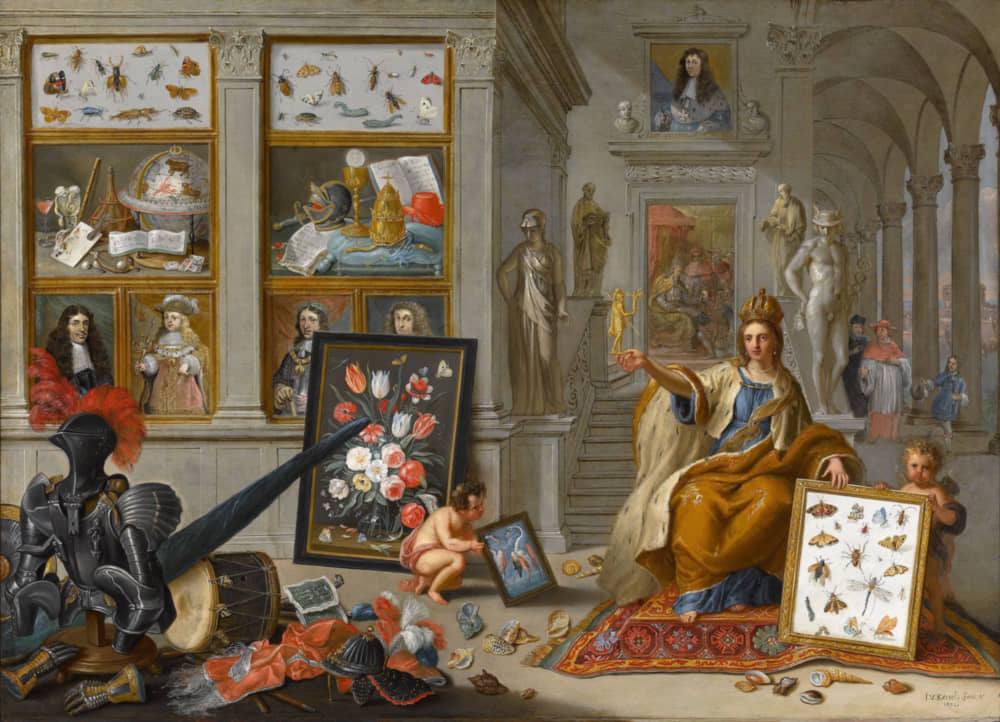The current citizens of Europe underestimate the role played by their civilization in the history of the world. This erasure of memory anticipates the acceptance of a collective disappearance.
Refusing such an extinction, the Iliade Institute works towards the affirmation of the cultural richness of Europe and the reappropriation of their identity by Europeans, which is also the awakening of the European conscience. The Iliade Institute carries forward the long memory of European civilization and insists that this civilization is unique, great and has continuous appeal.
The main vocation of the Iliade Institute is to train young men and women concerned with their history, which is still to be constructed. Armed with a strong culture of European traditions and values, for they are the animators of the necessary European awakening, capable of giving to civic or political action the indispensable cultural and metapolitical dimension. These young people can then put themselves at the service of a community of destiny, which risks disappearing if it does not take itself seriously.
The Iliade Institute is fundamentally committed to disseminating a view of the world that breaks with the mortifying trend we are experiencing today, as well as an attitude of insubordination towards conformist thinking, and this by all available means. This work and vision has recently been summarized in a Manifesto. Our friends at Éléments kindly bring us this interview with Romain Petitjean, the Director of Development at the Iliade Institute.
Éléments (É): Why a manifesto? Manifestos have long been the hallmark of the artistic avant-gardes of the late 19th and early 20th centuries. Could it be because the Iliade Institute sees itself as avant-garde: the avant-garde of the European renaissance?
Romain Petitjean (RP): The purpose of this manifesto is to make us avant-garde. At a time when everything is collapsing, when we are being told to be replaced, to forget our past, to become undifferentiated consumers, we want to assert the possibility of a civilizational renewal for Europe. For this, the Iliade Institute calls for a reappropriation by Europeans of their identity. Understood in this way, the “revolution” does not consist of a clean slate, but rather a movement to return to the origin, to draw new energy from it, to reaffirm the need to build the future on the basis of intangible values.

The parallel with the artistic avant-garde is relevant insofar as the Iliade Institute attaches particular importance not only to ideas, but to the very idea of beauty. This is what the Greeks already told us: what is good is always beautiful. In this sense, if the modern world forces us to rebel against it, it is because it has only produced ugliness: mass urbanism, omnipresent concrete, and an art that no longer knows how to represent anything. The trainees of the recent promotion of Dante, who are currently following our training courses, have found the right words to define themselves: “Fighting the society of the Same, keeping the ugly at a distance, and protecting our civilizational enclosure.”
(É): As with the journal Éléments, the theater of operations of the Iliade Institute is at the European level. What is the basis of Europe’s singularity, its “exceptionalism,” to use the term of the Iliads Institute’s Manifesto? What are the permanent features behind the contingencies?
RP: It is obviously a “world view” of its own. The essayist René Marchand said that civilizations are different planets. These differences can be seen in many features: the place of women, the relationship to the sacred, the taste for exploration and conquest, but also the art of doubt, etc. I believe that a very great European specificity has always been the capacity to harmoniously articulate contradictory principles: openness to the world and the defense of the home, the material and spiritual dimensions of existence, abstract thought and sensitivity. Many other civilizations have seen these contradictory principles as antagonisms. Another specificity of the European civilization is the hierarchy of values that is peculiar to all the peoples of our continent: first the spiritual and warlike values; only then the economic ones. Other civilizations have placed purely economic values much higher.
(É): Each manifesto is an “address” which seeks to invest the public space and the political field. Is the Iliade Institute preparing to enter politics?
RP: We are involved in politics. Simply put, we do not reduce politics to the electoral realm—which is not the area that corresponds to our vocation. We have many training activities, through seminars for the younger generation and through our editorial production. In doing so, we are preparing a generation to act in all fields, including the electoral battle; but this is only one outlet among others. There are some elected officials in our ranks, but they are a minority. If our themes can have an impact on the programs, or if our vocabulary can be taken up, we are obviously delighted. Our vocation is to move the lines on all subjects. This is the purpose of the Manifesto, published a few months before the presidential election: to propose a clear, coherent, alternative and total doctrine to those who intend to defend France and European civilization. The people who follow us seem to have understood it, since we note many grouped purchases of readers who wish to spread this document to those around them.
(É): We know how much Dominique Venner, one of the main figures of the Iliade Institute (the Manifesto is dedicated to him), rejected all forms of fatalism and programmed declinism à la Spengler. Is this the reason why the Institute warns us against two convenient temptations—that of collapsology and that of a vitrified conservatism—both of which dominate our times and our circles? Do we need to dust off to revive?
RP: Some people would like to proclaim the end of history, and to totally evacuate the question of the destiny of peoples. Dominique Venner believed in the unforeseen in history, and demonstrated that it was one of its driving forces. He also believed in the determination of strong men. We follow this line.
The past is for us a resource, a source of inspiration, but in no way an incapacitating thing. There is another possible future, provided we take the trouble to make it happen. Collapsology as well as a certain conservatism can be impolitic: if time is only an inexorable decline, what is the point of persisting in our being?
We must remain absolutely faithful to our identity, but this does not imply that we remain frozen. A frozen identity becomes its own caricature; it consists only in mumbling slogans without understanding them, in perpetuating rites whose meaning has been lost. Instead, we want to reconnect with the spirit that guided our ancestors, the spirit that gave birth to our traditions and our great epics. We can talk day and night about courage—but it only makes sense if it is embodied in daily ethics, in material facts. The same is true of all principles. It is voluntary action, conscious of itself, that can provide the possibility of a leap forward.
(É): In the age of the all-screen, you have launched a public display of the Institute and its Manifesto, which is very welcome. We are not totally dematerialized creatures. How many revolutions began with “placards”: Luther’s 95 theses, the Mazarinades, the Maoist dazibaos! What did you want to do by launching this poster campaign?
RP: This poster is a new way to challenge our fellow citizens, to try to wake them up from their lethargy. Trainees and auditors have organized collage sessions in the university districts of Paris, Lille and Rouen. Other poster campaigns are also planned. This mode of action may be surprising, but all means are good to spread our message and rally the younger generations to us.
(É): Now that the Manifesto is written, the Institute’s roadmap must be also written. What will be the major steps in the coming months?
RP: The major event of the year will be our conference on April 2, 2022, which will bring together more than a thousand people. The very strong editorial dynamic will continue with the publication of important books on Islam and the family, as well as many books for young people. The main challenge for the Iliade Institute, beyond the consolidation of the main pillars on which it is based, will be to unite the many people who pass through our ranks by ensuring that their commitment is total. We have also set up a new tool to help us do this: a project incubator, Le Nid, which aims to support budding companies, cultural associations in the process of being structured, etc.—all initiatives that will enable us to bring our ideas to life in a concrete and lasting way. Finally, we have decided to create a “Studies and Research” division that will allow us to engage in in-depth work on the ideas and words that will guide the debates of tomorrow.
Featured image: “Allegory of Europe,” by Jan van Kessel the Elder and Erasmus Quellinus II, painted in 1670.
